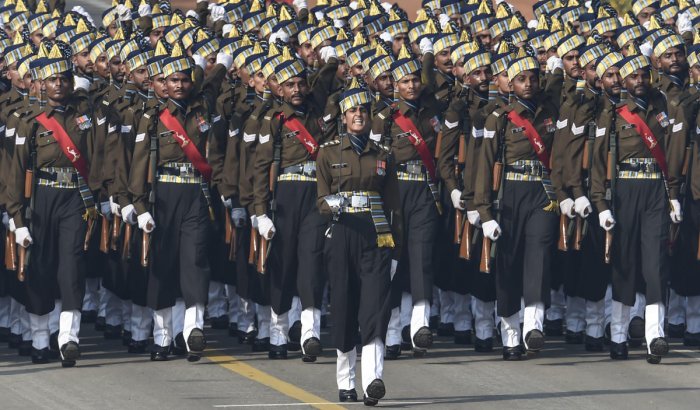
Women officers for command roles in Army: SC says 'forward march'
The Supreme Court on Monday has ruled that women should be granted permanent commission on par with male officers in the Indian Army. It also said women can be given positions of command in the Army.

The Supreme Court on Monday (February 17) ruled that women officers of the Indian Army will be granted command and criteria appointments on par with their male counterparts.
Pronouncing the verdict, a bench of justices DY Chandrachud and Ajay Rastogi demolished the Centre’s argument against giving command position to women and said that the note submitted by it on the matter perpetuated “sex stereotype”.
“Physiological features of women have no link to their rights. The mind-set must change,” the bench ruled.
Reading out the order, Justice Chandrachud ruled that the permanent commission will apply to all women officers in the Army service, irrespective of their years of service.
Welcoming the verdict, Indian Army’s Lt. Colonel Seema Singh said, “This is a progressive and historical judgement. Women should be given equal opportunities.”

Challenging a 2010 order of the Delhi High Court, the Centre in a note to the Supreme Court had said that “physical prowess” and “physiological limitations” could be hindrances for women officers while working in commanding positions.
It told the apex court that male soldiers who come from rural backgrounds, are yet to warm up to the idea of taking orders from a woman officer in command of units.
“Composition of rank and file being male, predominantly drawn from rural background, with prevailing societal norms, troops are not yet mentally schooled to accept WOs (women officers) in command of units,” the Centre said in the note.
“Inherent physiological differences between men and women preclude equal physical performance resulting in lower physical standards and hence the physical capacity of WOs (women officers) in the IA remain a challenge for command of units,” the note said, adding that officers are expected to lead their men ‘from the front’ and need to be in prime physical condition to undertake combat tasks.
Related news | Andhra govt appoints two women officers to implement Disha Act
Responding to the Centre’s note in an earlier hearing, the court had said that “administrative will” and “change of mindset” are required on the issue of giving command posts to women officers in the Army.
On the issue raised in the written note about a situation where a women soldier or officer may become a ‘prisoner of war,’ the bench said there were other services in addition to direct combat operations where women officers may serve.
“It would be a situation of extreme physical, mental and psychological stress for the individual, the organisation and above all the government. Therefore, such a situation is best avoided by keeping the WOs away from direct combat,” the Centre has said in the written note.
In its note, the Centre said the country has two unsettled borders and Armymen are mostly deployed in isolated and detached posts in difficult terrain and adverse climatic conditions.
Related news | Maharashtra, Kerala govts to encourage more women drivers
“The lines of communications are extended and the internal security situation in the north-east and J&K puts severe limitations on the functioning of units in these areas. These conditions have a major bearing in the employment of WOs in light of their physiological limitations accentuated by the challenges of confinement, motherhood and child-care,” it said.
In its written note, the Centre has said that women officers up to 14 years of service would be considered for permanent commissions and further career progression in staff appointments only.
It said that women officers above 14 years of service would be permitted to serve up to 20 years without consideration for permanent commission and would be released with pensionary benefits subject to meeting disciplinary and medical criteria.
The note said that women officers having over 20 years of service would be released with pensionary benefits.

